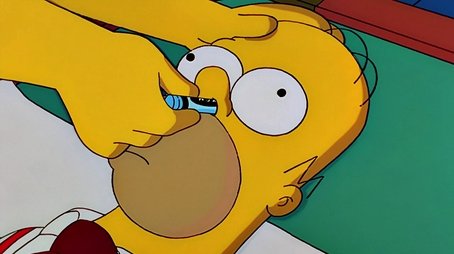
Sorry, we have not watched this yet.

While working as a human guinea pig (to pay off the family's lost savings after making a bad investment), Homer discovers the root cause of his subnormal intelligence: a crayon that was lodged in his brain ever since he was a boy. He decides to have it removed to increase his IQ, but discovers that being smart does not necessarily equal being happy.
Sorry, we have not watched this yet.